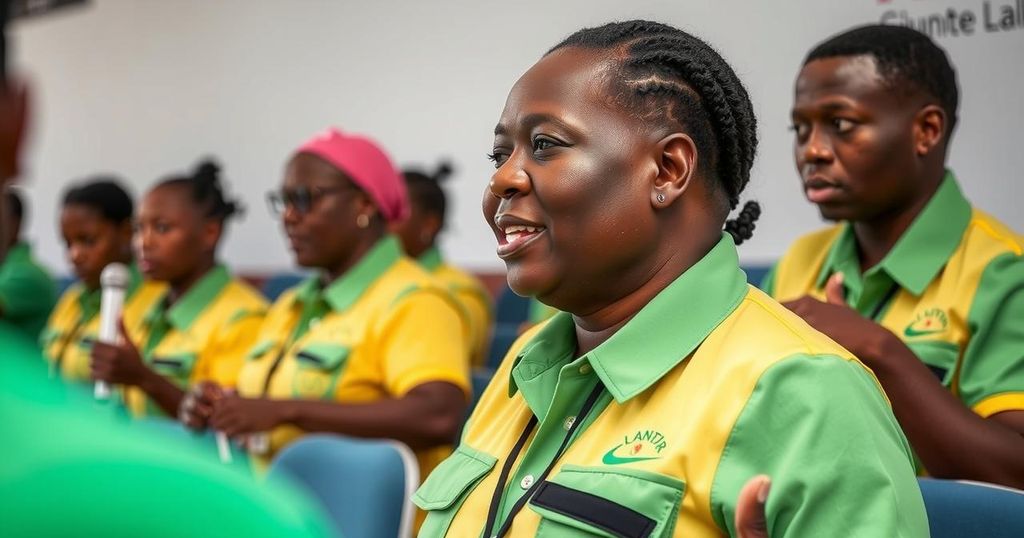World news
2024 ELECTIONS, AFRICA, ALI BONGO ONDIMBA, BILLBOARD, BR, BRICE OLIGUI NGUEMA, COMMITTEE FOR THE TRANSITION AND RESTORATION OF INSTITUTIONS, CORRUPTION, CT, ELECTIONS, GABON, INTERIOR MINISTRY, LIBREVILLE, NATIONAL ASSEMBLY, OLIGUI, POLITICS, UNION NEWSPAPER, VOTER TURNOUT
Michael Grant
0 Comments
Gabonese Voters Overwhelmingly Approve New Constitution in Referendum
Gabonese voters reportedly approved a new constitution with 91.8% support in a referendum following a military coup. The proposed constitution limits presidential terms and disallows prime ministers, raising concerns about preserving democratic principles. Voter turnout was reported at 53.54%, lower than expected, and many citizens are wary of a potential consolidation of power. The transitional president heralded the referendum as a step towards progress amidst economic challenges faced by the populace.
Gabon’s military leaders have declared a resounding approval of a new constitution in a recent referendum, with provisional results indicating that 91.8 percent of voters favored it. This constitutional change introduces a presidential term limit of two seven-year terms and disallows a prime minister, alongside measures that prevent a dynastic succession of power. Consequently, it disqualifies former ruler Ali Bongo Ondimba due to his foreign marriage and his children’s status. In the wake of the August 2023 coup, transitional president Brice Oligui Nguema referred to the referendum as a significant advancement for democracy while ensuring that voting remained secure despite the heightened military presence. Though attendance was quoted at 53.54 percent, this is notably lower than earlier projections, raising questions about the electoral engagement amidst a backdrop dominated by official propaganda. Critics express concerns that the referendum merely consolidates dictatorial power, with the opposition arguing that it serves to entrench the junta’s authority. Unemployment remains a primary concern among voters, highlighting the ongoing struggle of the Gabonese populace for better governance. The anticipated final tally will be presented by the constitutional court.
The recent referendum in Gabon followed significant political upheaval characterized by a military coup that ousted long-time president Ali Bongo Ondimba. The junta, taking power in August, aimed to reshape the framework of governance in Gabon, an oil-rich nation. The proposed constitution, which limits presidencies and imposes strict eligibility criteria for candidates, is perceived as a step towards democracy by some and a potential vehicle for authoritarian rule by others. With high unemployment rates and various socio-economic challenges, the populace’s perspective on governance is crucial.
In conclusion, the approval of Gabon’s new constitution represents a pivotal moment for the nation as it seeks to redefine its political landscape following a coup. While the military rulers stress this development as a progressive stride towards democratic governance, critics warn of the potential for entrenched authoritarianism. Voter sentiment appears complex, shaped by a desire for stability amid economic concerns, revealing the challenges that lie ahead in Gabon’s political transformation.
Original Source: www.tiogapublishing.com




Post Comment